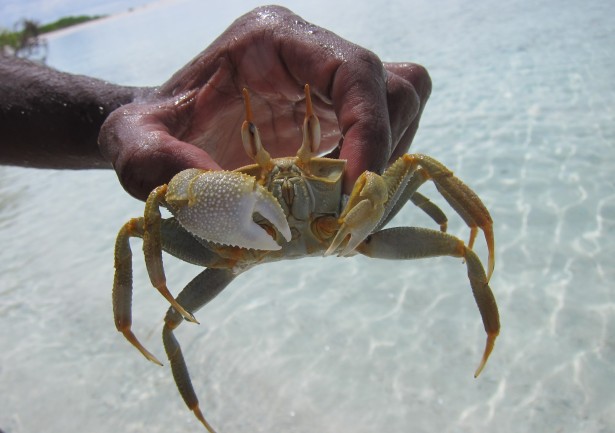A Simple Guide to Sustainable Seafood

Imagine a net the size of several football fields being dragged over your hometown destroying everything in its path. Buildings and structures and lives levelled in a matter of hours. In the ocean this happens every day. It is called trawling.
Our oceans need us now more than ever to be responsible when it comes to selecting seafood. It is up to us as consumers to demand sustainable seafood to change the way the oceans are being used. With the advancements in technology over the last century have come highly destructive fishing methods. These include the overfishing of many different species to the brink of extinction, trawling in the open ocean and devastating amounts of bycatch which is marine life that is caught when fishing for desirable species and thrown overboard after it has perished.
It is internationally recognized that the ocean is being harvested in a highly unsustainable manner and it is only a matter of time before fisheries collapse. Unlike several centuries ago, we now know that the ocean’s bounty is not endless and that we are driving it to a point of extreme duress.
So how do we as consumers make sure that the seafood we are eating and feeding to our families is not contributing to the demise of our oceans? Here are a few simple steps you can take to make wise choices when it comes to seafood.
- Find out the best types and sources of seafood before you consume. Monterey Bay Aquarium has an excellent search engine for you to browse through all of your favorite fish and shellfish from salmon to shrimp.
- Download the free Seafood Watch app to your iPhone or Android to find out where you can find local restaurants and stores that supply sustainable seafood as well as seafood, sushi and super green list guides to help you decide which sources are sustainable as you shop on the go!
- Buy seafood from grocery stores that are committed to providing sustainable seafood. Greenpeace has a great Retailer Scorecard that rates the big chain grocery stores. Find out which retailer is your best choice! Here’s a teaser: Wholefoods is ranked #2, who is ranked #1???
- As a rule, stay away from CHILEAN SEA BASS, ORANGE ROUGHY, SHARK, BLUE FIN TUNA AND DOGFISH as they are overfished to the point of collapse and extinction. Many other species of fish such as tuna, halibut, monkfish, salmon, swordfish, marlin, octopus and cod and others are on the AVOID list although they have better alternatives from different fishing methods.
- SHRIMP is one of the worst choices as the manner in which it is harvested produces LOTS OF BYCATCH. For every pound of shrimp caught, five pounds of other marine life are caught and perish before they are thrown back overboard. There are good sources of shrimp, mostly being freshwater sources, so look them up here.
- Make sure you know what you are eating! Oceana did a recent study testing fish at restaurants and markets in cities around the country and the results were shocking. They found the percentage of mislabeled fish were as follows: 39% in New York City, 48% in Boston, 55% in Los Angeles and 31% in Miami. This is alarming for many reasons mainly being that there are some species that have higher levels of mercury and toxins than others that you shouldn’t be eating as well as the fact that many times you are being charged for a more expensive species and eating something that is not on the same level. Here is a list of the most commonly mislabeled seafood and what you are actually getting instead.
- Try out these great sustainable seafood recipes!
- Share your views and educate others! If you have a favorite seafood restaurant or market, let them know that this is important to you. Often times people are not aware of the issues facing our ocean and that their choices in selecting seafood affect us all. Education is the key to overcoming this problem and the more people that are informed, the more likely it is that change will happen.






Leave a Reply